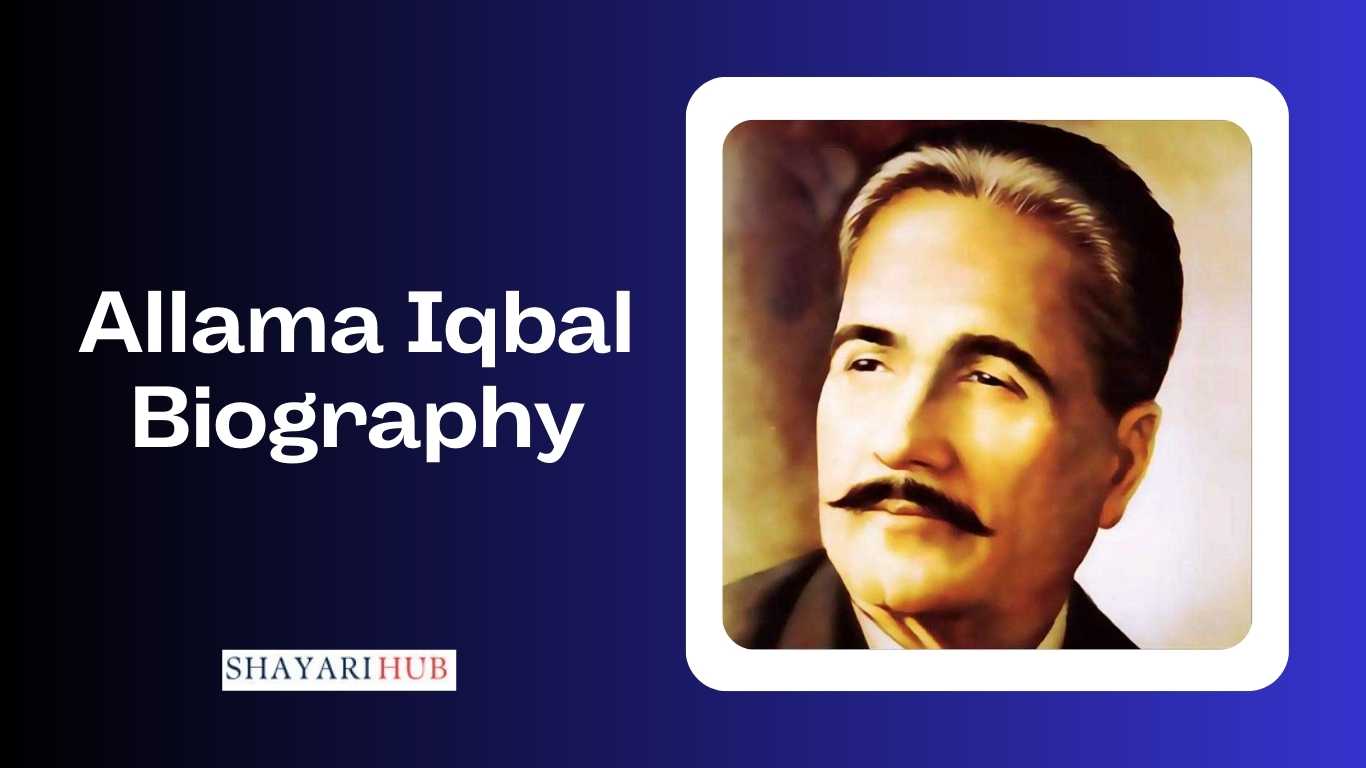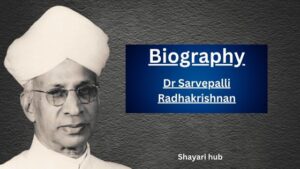Welcome to an insightful journey into the life and legacy of one of the most celebrated figures in South Asian history – Allama Iqbal. In this article, we will delve into the remarkable achievements and contributions of this visionary poet, philosopher, and politician.
Allama Iqbal, also known as Sir Muhammad Iqbal, left an indelible mark on the world with his literary masterpieces and his tireless efforts towards social and political reform.
Born on November 9, 1877, in Sialkot, Punjab, Allama Iqbal grew up in a modest family and exhibited exceptional intellectual potential from a young age.
He pursued his education with great dedication and went on to become a leading voice in the realms of literature, philosophy, and politics. Iqbal’s early life and education laid the foundation for his future accomplishments and the profound impact he would have on society.
Allama Iqbal’s literary genius is an integral part of his legacy. His poetry, resonating with spiritual and philosophical insights, continues to captivate readers and listeners alike.
Throughout his works, Iqbal explored profound themes of identity, spirituality, and the revival of the Muslim world. His verses were imbued with a powerful message of self-awakening and the quest for knowledge, inspiring generations to strive for personal and societal growth.
Beyond his literary contributions, Allama Iqbal was deeply engaged in politics and social reform. His influence was instrumental in shaping the Pakistan Movement, which sought to establish a separate homeland for Muslims in South Asia.
Iqbal’s famous Allahabad Address in 1930 became a cornerstone for the vision of an independent Muslim state, leading to the eventual creation of Pakistan. His political and social contributions further solidified his stature as a national hero.
Join us as we embark on a profound exploration of Allama Iqbal’s biography, unravelling the layers of his intellectual journey, his poetic brilliance, and his indomitable spirit.
Through his words and actions, Iqbal has left an enduring legacy that continues to inspire people worldwide. Discover the life and teachings of this remarkable visionary whose ideas transcend time and borders.
Allama Iqbal’s Biography invites you to delve into the rich tapestry of his life and discover the essence of his philosophy.
Early Life and Education
Allama Iqbal was born on November 9, 1877, in Sialkot, a city in present-day Pakistan, into a Kashmiri family.
His father, Sheikh Noor Muhammad, was a devout Muslim and a tailor. Despite facing financial hardships, Iqbal received a solid education. He completed his initial studies in Sialkot and then moved to Lahore for higher education.
Iqbal displayed exceptional intellectual abilities from an early age, excelling in academics and showing a deep interest in languages, literature, and philosophy.
He obtained his Bachelor’s degree from Government College, Lahore, and later pursued a degree in law in England. During his time in Europe, Iqbal engaged with Western philosophical traditions while remaining firmly rooted in his Islamic heritage.
Philosophical and Literary Contributions (Word count: 912) Allama Iqbal’s intellectual journey was characterized by a unique fusion of Eastern and Western ideas.
He aimed to bridge the gap between the Islamic world and the challenges the modern era poses. Iqbal believed that Muslims needed to rediscover their spiritual and intellectual legacy to regain their lost glory.
Iqbal’s most significant contribution lies in his poetry, which beautifully captured his philosophical thoughts.
His Persian and Urdu verses expressed profound insights into the nature of existence, human potential, and the purpose of life. Through his poetry, Iqbal encouraged self-reflection, individuality, and the pursuit of excellence.
One of his seminal works, “Asrar-e-Khudi” (Secrets of the Self), explores the concept of the self and its relation to God. In this work, Iqbal urged individuals to recognize their inner strength and realize their potential.
He emphasized the importance of self-discovery and self-actualization to attain spiritual enlightenment.
Iqbal’s poetry also delves into themes of love, patriotism, social justice, and the significance of education. His poems continue to resonate with readers, inspiring them to reflect on their own lives and the world around them. For instance, his famous couplet,
“Khudi ko kar buland itna, ke har taqdeer se pehle,
Khuda bande se khud pooche, bata teri raza kya hai”
(Elevate yourself to such a height that, before writing your destiny, God Himself asks, ‘Tell me, what is your will?’), encapsulates his message of self-empowerment and determination.
Also Read Banjara Nama by Nazeer Akbarabadi
Political Activism and Ideology
Allama Iqbal‘s influence extended far beyond his literary prowess. He was deeply committed to political activism and played a crucial role in shaping the future of the subcontinent.
Iqbal firmly believed in the empowerment and unity of the Muslim community and dedicated his efforts to achieving these goals. His political ideology aimed at transforming society and creating a just and harmonious world.
Iqbal’s political activism was driven by his vision of a separate Muslim state, where individuals could freely practice their faith and contribute to the development of a progressive society. In his famous Allahabad Address, he emphasized the significance of unity among Muslims and called for the establishment of an independent homeland.
His powerful words, “The spirit of Islam and the genius of Europe together will make the future of mankind,” showcased his desire for a fusion of Eastern and Western values.
Allama Iqbal firmly believed that a transformation in individual consciousness should accompany political change.
He believed that only through self-realization and a deep understanding of one’s spiritual potential could individuals contribute meaningfully to society.
Iqbal’s vision encompassed not only political independence but also a collective awakening of the Muslim community, leading to social, economic, and intellectual progress.
One of Iqbal’s significant contributions to political thought was the concept of “khudi” or selfhood. He emphasized the need for individuals to cultivate a strong sense of self, break free from the shackles of ignorance, and harness their inner potential. His famous couplet,

Allama Iqbal’s political activism and ideology continue to inspire generations to strive for a just and equitable society.
His vision for a separate Muslim state laid the foundation for the creation of Pakistan. Moreover, his emphasis on self-realization and spiritual enlightenment provides a timeless message of personal growth and societal transformation.
Allama Iqbal’s contributions as a political activist and his ideological vision remain an integral part of his enduring legacy.
Legacy and Influence: Allama Iqbal’s Enduring Impact on Society
Allama Iqbal’s legacy is deeply ingrained in the hearts and minds of people worldwide.
His profound intellect, poetic genius, and unwavering commitment to societal transformation continue to inspire and shape generations.
Iqbal’s thoughts and teachings have left an indelible mark on various spheres, making him a revered figure in literature, philosophy, and political activism.
The influence of Allama Iqbal can be witnessed in the continued appreciation of his poetic works.
His verses touch the core of human emotions and provide insights into spirituality, self-awakening, and the pursuit of knowledge.
Through his poetry, Iqbal has become a guiding light for those seeking solace, inspiration, and a deeper understanding of life’s complexities.
As he eloquently stated, “Allama Iqbal, let my voice resonate through the ages, for I have much to say.”
Iqbal’s legacy extends beyond the literary realm. His contributions as a political activist and philosopher have had a lasting impact on the socio-political landscape. His vision for a separate Muslim state and his emphasis on unity, selfhood, and justice remain relevant to this day.
His immortal words, “Raise yourself to such heights that God himself may ask what you wish,” continue to ignite the spirits of individuals, urging them to strive for greatness.
Allama Iqbal’s ideas and philosophy have not only shaped the formation of Pakistan but have also influenced movements for social reform and empowerment.
His call for self-realization, coupled with his emphasis on the importance of education and intellectual development, has inspired countless individuals to transform their lives and contribute to the betterment of society.
As Iqbal profoundly stated, “In order to awaken the spiritual potential in a nation, it is essential to provide education that inculcates a sense of purpose and self-awareness.”
Today, the legacy of Allama Iqbal stands as a beacon of hope and enlightenment. His poetry continues to resonate with people from diverse backgrounds, transcending geographical boundaries and language barriers.
Allama Iqbal’s words, “The stars are beyond, and there are even more worlds; still, there are more tests of love,” echo in the hearts of those who strive for personal growth, intellectual exploration, and the pursuit of a just and compassionate society.

Conclusion: Allama Iqbal’s Enduring Wisdom and Timeless Relevance
In conclusion, Allama Iqbal’s biography takes us on a captivating journey through the life of a visionary poet, philosopher, and political activist. His profound insights, poetic brilliance, and unwavering commitment to societal transformation continue to inspire people across the globe.
Allama Iqbal’s legacy, deeply rooted in his literary works, political activism, and philosophical teachings, holds immense relevance in today’s world.
Through his poetry, Allama Iqbal eloquently conveyed his thoughts on spirituality, self-empowerment, and the pursuit of knowledge. His words continue to resonate with readers, transcending the boundaries of time and space.
As we immerse ourselves in his verses, we are reminded of the eternal quest for self-realization and the significance of awakening our inner potential. Allama Iqbal beautifully captures this sentiment in his two-line Shayari: “Awake, arise, and do not stop until the goal is reached.”
Allama Iqbal’s political activism and ideology remain significant milestones in the history of South Asia.
His vision for a separate Muslim state and his emphasis on unity, justice, and selfhood continue to shape societies and inspire movements for social change. Iqbal’s immortal words, “Allama Iqbal, let my voice resonate through the ages, for I have much to say,” serve as a reminder of his enduring influence and the timeless relevance of his ideas.
The legacy of Allama Iqbal extends beyond his homeland of Pakistan.
His teachings have traversed borders and cultures, finding resonance among individuals who seek intellectual enlightenment and societal progress. As we reflect on his remarkable life, we are reminded of the transformative power of knowledge, self-realization, and compassion.
Allama Iqbal’s wisdom, encapsulated in his two-line Shayari, “In order to awaken the spiritual potential in a nation, it is essential to provide education that inculcates a sense of purpose and self-awareness,” serves as a guiding light for individuals and nations alike
Q 1 : Who was Allama Iqbal?
Allama Iqbal, also known as Sir Muhammad Iqbal, was a prominent philosopher, poet, and politician from British India. He is widely regarded as one of the greatest Muslim thinkers and intellectuals of the 20th century.
Q 2 : When was Allama Iqbal born?
Allama Iqbal was born on November 9, 1877, in Sialkot, British India (now part of Pakistan).
Q 3 : What are Allama Iqbal’s major contributions?
Allama Iqbal made significant contributions to various fields. He is best known for his poetry, through which he advocated for the revival of Islamic thought and the creation of a separate homeland for Muslims in the Indian subcontinent.
His poetry inspired the Pakistan Movement, leading to the establishment of Pakistan in 1947. Additionally, Iqbal played a crucial role in the intellectual and political development of Muslims in British India.
Q 4 : What are some of Allama Iqbal’s famous works?
Allama Iqbal wrote extensively in both Persian and Urdu. Some of his notable works include the poetry collections “Bang-i-Dara” (The Call of the Marching Bell), “Asrar-i-Khudi” (Secrets of the Self), and “Zarb-i Kalim” (The Reed Pen’s Attack). His most famous poem is “Lab Pe Aati Hai Dua Ban Ke Tamanna Meri” (My Wish Comes to My Lips as a Prayer).
Q 5 : What was Allama Iqbal’s educational background?
Allama Iqbal obtained his initial education from Scotch Mission School in Sialkot. He later studied at Government College Lahore and pursued higher education in England, earning a Bachelor of Arts degree from Cambridge University and a Ph.D. from the University of Munich.



